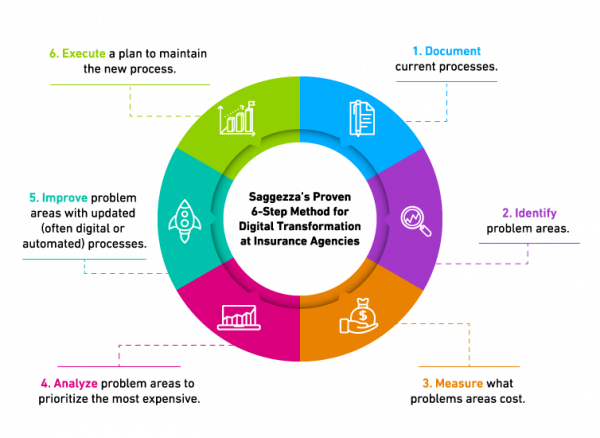The impact of digital change is being seen across all industries quickly. As part of the digitization process, it is straightforward to transform analog or physical data into a computer-accessible format by using outside document scanning services. Digitalization is the process of integrating digital technologies into ongoing processes. In the insurance industry, providing the best client experience is crucial, and digitization is the means to achieving this goal. People are increasingly using digital channels for ordinary transactions as well as financial services as a result of the increased use of smartphones. This demonstrates just how crucial digitization is to insurance claims processing services.

Digitalization In The Insurance Sector Creates Value
Digitalization, in the words of Gartner, is “the use of digital marketing service provider technology to transform an existing business model and provide fresh opportunities for generating value and revenue.” The key reasons for the digitalization of the insurance sector are as follows:
- Electronic data is expanding in volume.
- Mobile interfaces are being used more frequently, and artificial intelligence is getting stronger.
- Cloud computing, machine learning, artificial intelligence, business intelligence, and the Internet of Things are among the new digital technologies that are proliferating.
These components have improved the tasks linked to insurance’s automatability. Although the insurance claims processing solutions are expanding swiftly, Data Management Services claims that digitalization is also altering the entire value chain. International players are utilizing contemporary technologies in their marketing, distribution, product creation, claims prevention and underwriting processes.
- Automation Of Manual Tasks: Digitalization automates time-consuming and challenging manual tasks in customer service, fraud detection, underwriting, claims processing, and policy administration in the insurance Claims Processing Services industry. An example of a sector where digital technology has a large impact is title insurance. The lengthy home-buying process, which includes the buyer, seller, real estate agents, attorneys, and lenders, is linked to title insurance. Digital title insurance enables efficient communication between numerous parties through the use of workflow software, calendars, and other tools. Automation of the workload improves disaster recovery, reduces human error, improves reporting, lowers staffing and other costs, and reduces downtime.
- Marketing And Distribution Innovations: In the past, insurance claims processing solutions were only offered through traditional channels like corporate agents, physical brokers, or banks. People can now buy insurance through a number of internet sources with just a click. This has changed the manner in which insurance is distributed and promoted.
- Customer Experience: Customers expect perfect Outsource Insurance Claims Processing Services from their insurers. On an integrated insurance platform, customers can receive product recommendations and compare multiple plans in a single window. Chatbots, video interfaces, and other virtual support modalities simplify and improve the customer experience with the insurance digital marketing and distribution process. Insurers may enhance the claimant experience by improving the speed, accuracy, and certainty they provide to claimants by investing in cutting-edge technologies.
- Processing Claims And Spotting Fraud: There are several phases involved in insurance claims processing, such as review, inquiry, adjustment, remittance, and claim denial. Automation simplifies each step of the claims administration process, including patient onboarding, identity verification, and claims adjudication. Data can be automatically extracted from documents after they have been digitized. The ability to analyze data from numerous sources, highlight inconsistencies, and distinguish between valid and fraudulent claims allows insurance claims management services to obtain real-time insights and status updates.
Conclusion
Global insurance claims processing services companies are currently transitioning their legacy systems to the cloud, virtualization, and the Internet of Things (IoT) while utilizing a single integrated platform to increase operational effectiveness. Digitalization an insurance company’s insurance records is the first step in automating its operations. Given how many documents insurers maintain, working with a document scanning company might be the best option. Document processing services digitization helps the insurance claims processing solutions industry make a move to digitalization.










